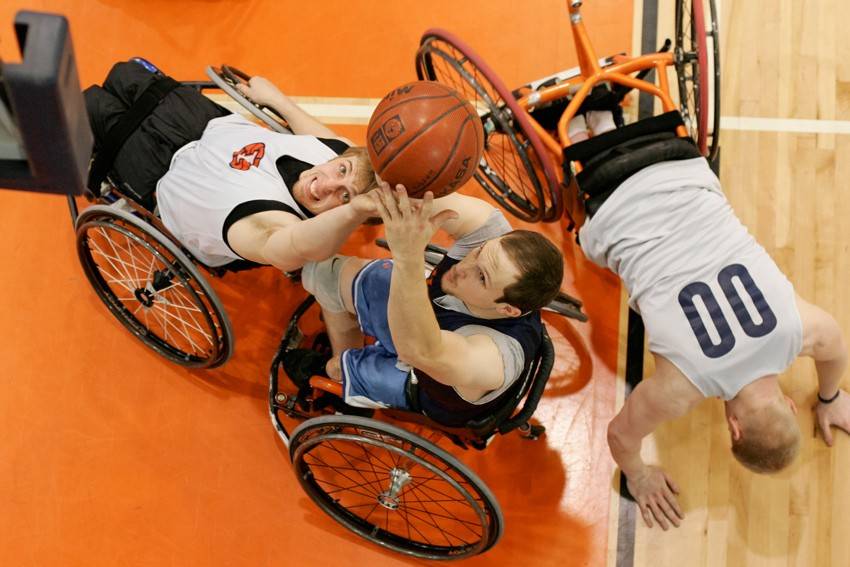In 2005, Josh Birnbaum embarked on a journey to capture the lives of the Mens
Wheelchair Basketball Team at the University of Ilinois. Dream Shot has more than 100 photographs that capture a candid perspective of the heart, dedication, and raw emotion the team exhibited over the course of three years. The Mens Wheelchair Team was established by Tim Nugent, in 1948, as the “Gizz Kids Wheelchair Squad.” The late Nugent, who passed away in 2015, was known as a pioneer for disability rights. He fought to provide more opportunities and change the public perspective for those with disabilities.
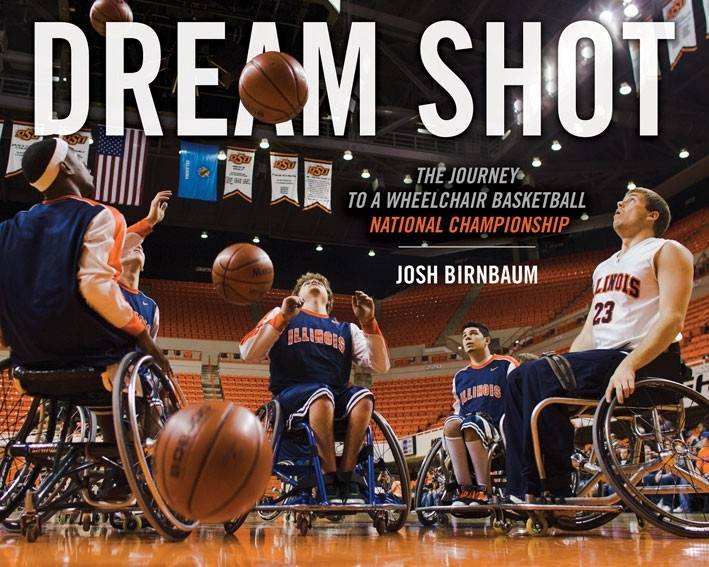
The book chronicles the lives of a team that continues the legacy of the team Nugent began. Birnbaum gives us a behind-the-scenes view of a team overcoming their physical limitations. He gives us perspective into their daily lives as they experience hardships, teamwork, losses, and ultimately triumphs, as they defy the odds placed against them. I was able to speak with Birnbaum over the phone to hear his thoughts on the book.
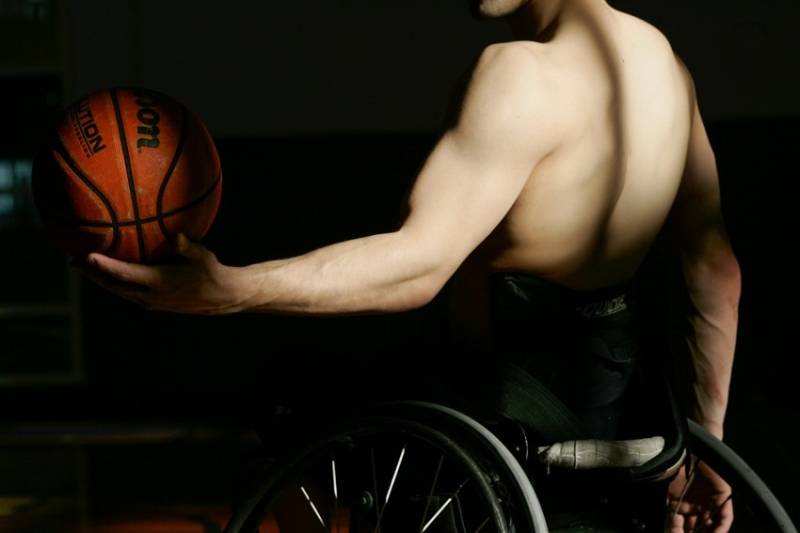
Smile Politely: Can you tell me about your educational background? You studied at the U of I, correct?
Josh Birnbaum: I went to the U of I, and I was an undergraduate in engineering. I finished my engineering degree, but I ended up becoming a photographer, and that’s why I pursued this project. This project taught me how to be a photographer, and it gave me a portfolio. I worked for newspapers, I did some freelance, and now I teach photography.
SP: What is your creative process, and what made you want to be a
photographer?
Birnbaum: I’m obsessed with reality, and everything that’s happening in every nook and cranny that I can’t see. So I was driven to get up every morning at 5am to go to practice. I wanted to see what was going on, what these individuals’ experiences were like, and show people through my camera what lives can be like. I think that’s ultimately why I do it. I get privileged access to people’s lives, to things that nobody else can see. I am able to show outsiders a perspective of unique lives that they may otherwise never be able to see. This helps them empathize with other people, and understand what other lives might be like.
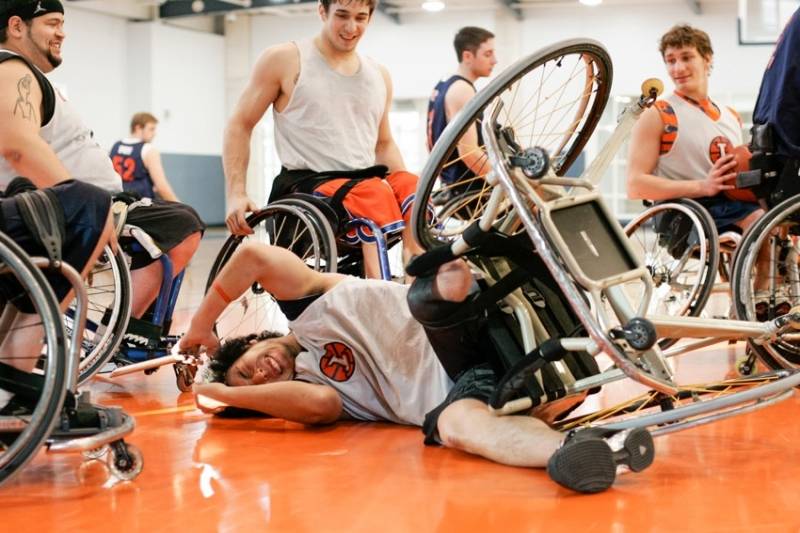
SP: Can you describe your book Dream Shot in your own words?
Birnbaum: I would say it chronicles the journey of a team working towards a national championship, which for them is the highest achievement in their field. They are individuals who are disabled in one way or another. (They are) working with the limitations they have to strive for winning, which I think is something we all could relate to: Struggling through challenge, working against the limitations you have, and trying to achieve your dreams.
SP: What’s your most memorable moment out of the three years you spent with
the team?
Birnbaum: The most memorable thing was when they won the championship. I had
been with them for three years at that point. Documenting seeing them lose for many years, seeing them have really tough times on that journey…seeing them win was the opposite side of the spectrum. They finally had achieved it. I remember seeing it happen and feeling like I was a part of it too. I had documented all the failures, and all the hard work that led up to that as well.
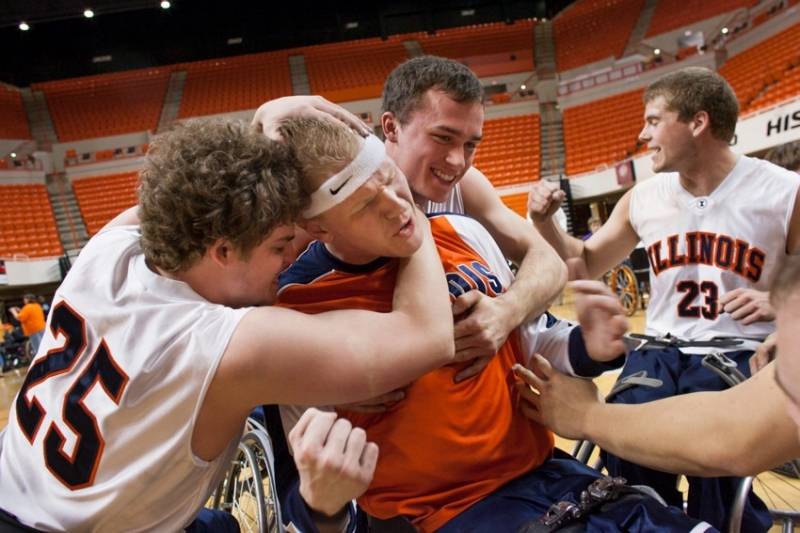
SP: Do you have a favorite photo from the journey?
Birnbaum: One of my favorite photos is when they won the championship and some of the guys are all hugging each other, crying, and yelling. You can see all of the emotion in the picture just by looking at it. Another favorite I have is one that was taken from far back. I laid down on the gym floor to get a low angle and I stepped all the way back to make the individuals in the frame look almost as small as ants as they move through the frame. Each of them is doing their own thing, but they are all moving together as they practice on the court.
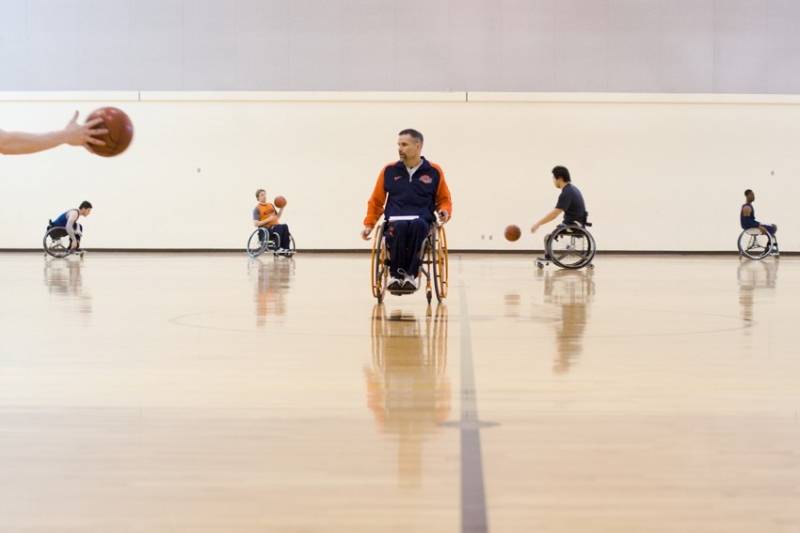
SP: Is there anything else we should know?
Birnbaum: I hope people can see this story and share it with those who would appreciate it. I want it to give hope and joy to people. I have met quite a few people that have told me about a relative or a sibling that has grown up with a disability. They have felt really helpless and down and out because of what they’ve grown up with. I think this story shows that you can always work against whatever limitations you have and still do great things.
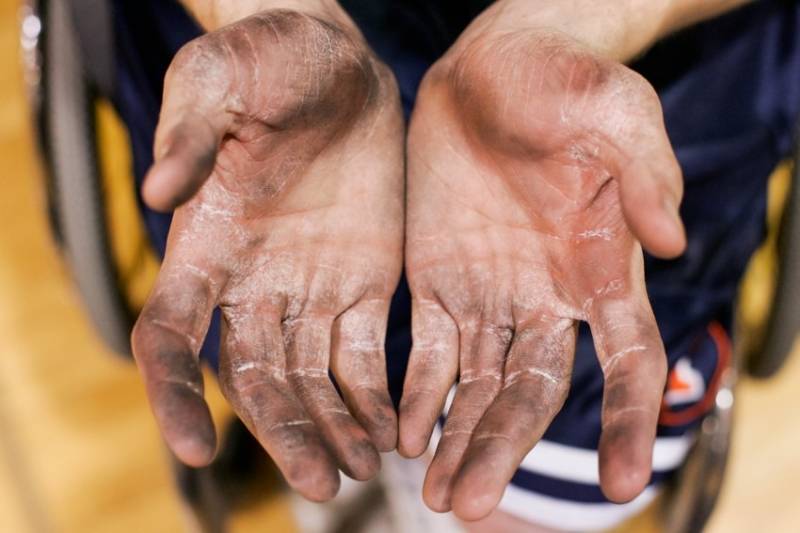
Dream Shot: The Journey to a Wheelchair Basketball Championship is available from University of Illinois Press.








